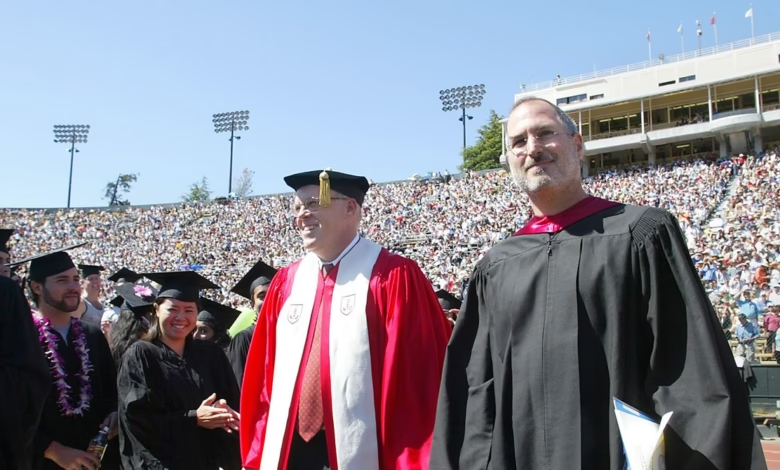Steve Jobs’ Secrets to the Best Commencement Speech Ever

▼ Summary
– Steve Jobs initially doubted his ability to deliver a compelling commencement speech for Stanford’s 2005 graduation, calling his draft “embarrassing.”
– The speech became one of the most famous commencement addresses ever, with over 120 million views, and is now celebrated in an online exhibit by the Steve Jobs Archive.
– Jobs, known for his privacy, surprised many by addressing deeply personal topics like his adoption, firing from Apple, and cancer in the speech.
– Stanford’s graduating class initially preferred comedian Jon Stewart, but Jobs was chosen after lobbying by a student whose father worked at Pixar.
– Jobs accepted the invitation partly due to optimism about his cancer recovery and proximity to Stanford, but later struggled with the speech’s direction and sought help from Aaron Sorkin, who didn’t deliver.
Steve Jobs’ Stanford commencement speech remains one of the most impactful graduation addresses ever delivered, blending raw personal stories with universal life lessons. Few could have predicted its enduring influence when Jobs first drafted his remarks in 2005. Initially hesitant about public speaking outside Apple events, he transformed personal vulnerabilities into a masterclass on resilience, creativity, and mortality that continues to resonate globally.
The speech almost didn’t happen. Jobs wasn’t Stanford’s first choice—comedian Jon Stewart topped the student poll. But Spencer Porter, one of four senior class presidents, championed the Apple cofounder. Porter’s father worked at Pixar, and his childhood connection to the studio (he allegedly inspired Pixar’s iconic Luxo Jr. lamp) added serendipity to the pitch. Stanford president John Hennessy ultimately extended the invitation, appealing to Jobs’ local ties and post-cancer reflection.
What made the speech extraordinary was Jobs’ willingness to break his own rules. Known for tightly controlling his public image, he stunned listeners by addressing his adoption, Apple ousting, and cancer diagnosis with unflinching honesty. Leslie Berlin of the Steve Jobs Archive notes this departure from privacy was “incredibly meaningful.” The talk’s three-act structure, connecting the dots, love and loss, and mortality—felt more like a screenplay than a graduation platitude, thanks partly to discarded drafts that included nutritional advice and scholarship ideas.
Even with help from Aaron Sorkin, Jobs struggled. Emails reveal his frustration: “I’m just not good at this sort of speech.” Yet on that sweltering June day, he distilled life’s complexities into 15 minutes. The bingo card handed to graduates omitted heavy hitters like “failure” and “death,” but those themes anchored his message. Two decades later, the remastered video and archival exhibit underscore how a reluctant speaker created a cultural touchstone, proving that authenticity, not polish, makes words timeless.
Image: Steve Jobs at Stanford’s 2005 commencement, courtesy of Stanford University Archives
(Source: Wired)

